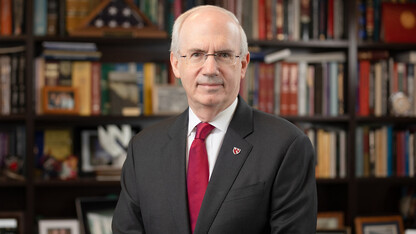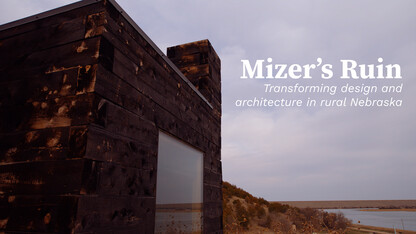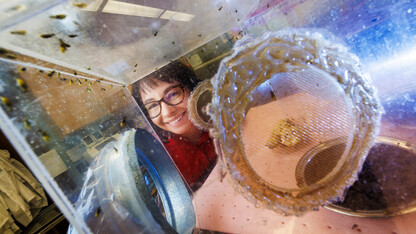· 4 min read
New report outlines ways to strengthen university’s sexual misconduct policies, response

A comprehensive review has placed the University of Nebraska–Lincoln on a course to deepen its commitment, training, policies and response to incidents of sexual misconduct.
The review was completed by the Chancellor’s Collaborative on Sexual Misconduct, a 75-member committee formed in 2019 after a call by Chancellor Ronnie Green. Led by Susan Swearer, Willa Cather Professor of Educational Psychology and a nationally-recognized expert on bullying, the collaborative includes representation from across the university, with faculty, staff and students (graduate students and undergraduates) working together to inform and guide the process.
In a final report, the collaborative outlined 22 recommendations for “creating and maintaining a caring campus community.” Key elements include a call for forming a permanent advisory board, policy revisions and additions, requiring sexual misconduct training for the campus community, and ongoing assessments of the university’s reporting and responses to incidents.
“As a university, we have a long-standing commitment to supporting and advancing best practices on prevention, education, intervention and policies related to sexual misconduct issues,” Green said. “However, we must also recognize that our university can and should do better.
“I’m appreciative of the collaborative’s thorough review and for providing this robust report, which will help advance our pursuit of a university community that is free of sexual misconduct of any kind.”
University leadership is already moving forward with recommendations within the report — primarily the formation of the Chancellor’s Collaborative to Prevent Sexual Misconduct. The group will serve in an advisory role, providing guidance to the chancellor, his executive leadership team and the Office of Institutional Equity and Compliance. That work will include advancing recommendations in the collaborative’s report.
“The report represents an initial step, a guide with clear recommendations intended to strengthen the university’s responses and procedures related to all forms of sexual misconduct,” Swearer said. “The creation of an advisory group is important as it signals that this isn’t a one-and-done report, and that our campus leadership is committed to real change.”
The collaborative’s work is modelled on similar initiatives at other Big Ten institutions, including Indiana, Rutgers, Illinois, Maryland, Minnesota and Purdue. Its work focused on three key areas — prevention and education, intervention, and policies, procedures and practices.
To strengthen prevention, education and intervention related to sexual misconduct among the campus community, the collaborative report recommends that the university:
conduct a campus-wide sexual misconduct needs assessment and an every-other-year climate survey;
require sexual misconduct training for new students, faculty and staff, including tying its completion to annual performance reviews for all employees;
inclusion of a statement on sexual misconduct in class syllabi;
indication within employment letters on an employee’s status as an expected reporter of incidents;
offering trauma-informed training to key campus groups; and
an ongoing assessment of sexual misconduct reporting and responses.
Some recommendations regarding updates to policies and procedures — primarily those centered on adjudication of incidents — were already in place or being finalized by the university. Additional points, such as removing gendered policy language and an explicit statement regarding the right to reasonable accommodations for disabilities, are in place.
“While refreshing to have confirmation that our university’s existing policies and procedures are in line with current best practices, we still have work to do,” Green said. “We are committed to remaining an institution that is safe for all, and we must continue to make awareness of and dedication to preventing sexual misconduct incidents a priority.
“This document will help put us on that path and, we will inform campus as we advance this initiative in the new year.”
Learn more about the Campuswide Collaborative on Sexual Misconduct and access its report here..







